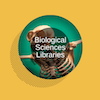Developing your critical thinking
We come into contact with so much information in our lives but how often do we stop and think about what it is that we're reading? Can we trust the authenticity of what is in front of us and how do we start to unpick why we might have concerns while also trying to get through as much reading as possible to meet a submission deadline.
Not to worry, on this page we've got some initial prompts to get you thinking critically, tips on different reading techniques to get through a lot of research quickly but efficiently, plus lots of training opportunities to learn with us. So pick out what you need depending on how much time you have.
Getting started with questioning a piece of work can be a bit intimidating but thankfully there are lots of frameworks out there to guide you through this process. We're fans of the PROMPT Framework, developed by the Open University, because we've used it for our own work over the years. This mnemonic provides a structured approach to critically evaluation lots of different kinds of information, whether for your studies or in your day-to-day life. In a nutshell, PROMPT stands for the following core areas:
- Presentation - is the information clearly communicated?
- Relevance - is it about the right topic or at the right level for your needs?
- Objectivity - is the author clear about their intentions and/or bias?
- Method - are the methods/data presented appropriate?
- Provenance - where was the information published?
- Timeliness - is the information up-to-date?
We've deliberately simplified some of the many 'prompts' provided by this Framework so check out lots more useful information on the Open University Library Services website. We've also created a downloadable handout so you can get started with using these questions in your work.
One of the many reasons as to why we sometimes forget to fully interrogate a piece of information in a critical way is because we have loads of things to do and not much time to do them all in. Reading critically but also quickly is the perfect balance for many, so we've put together a short video looking at three productive reading techniques - skim, scan and scrutinise. We've also got a transcript if you need one.
We offer lots of teaching on developing your critical thinking skills while you're at the University of Cambridge. We have dedicated sessions for undergraduate students and ones for postgraduate students and researchers. Check out which ones best fit what you need right now.
Getting started with critical reading in Biological Sciences
Being able to critically evaluate the science that you are reading about as part of your studies is a key skill to develop, and this live introductory session will help get you started. You can find out more information about the session and booking your place on UTBS.
Engaging critically with your literature: reading, writing and referencing productively
This live workshop is designed to build your skills in reading and assessing research articles for your Part II studies in Biological Sciences. We will cover lots of different skills to help you manage your work and research in your final year with activities, discussion and space to ask lots of questions. More information about this workshop can be found on UTBS.
Finding and evaluating resources for your literature review
The second half of this session on developing your literature review delves into all things critical. Once you've found a load of sources, how do you know which papers would be best to include in your review? This session will teach you how to critically evaluate potentially useful items with a number of techniques, before sharing tips on how to get started with your writing.
If you haven't quite found what you're looking for with the resources on this page, you can email us to discuss your questions and needs further. We can help you via email, an online chat through Teams or Zoom, or an in-person chat in a convenient location in Cambridge.
You can email the Biological Sciences Libraries Team as a whole at sbslibraries@lib.cam.ac.uk or see if you have a subject librarian in your area on our Librarians page.









